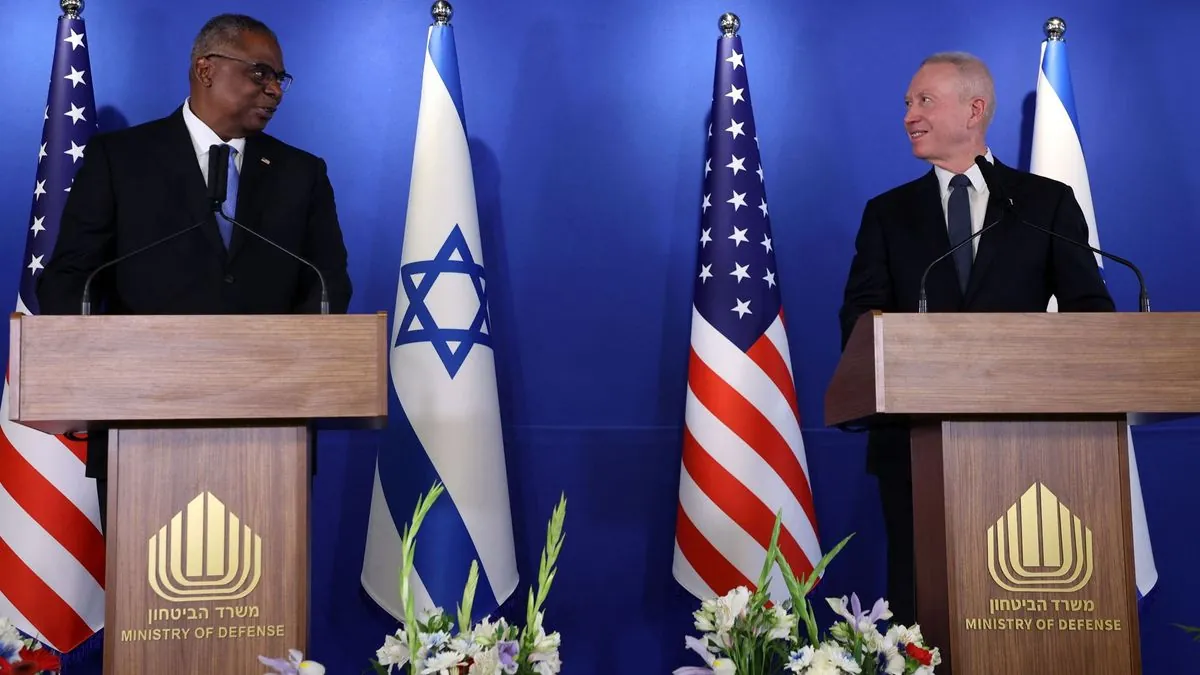U.S. Defense Chief Reaffirms Support for Israel Amid Regional Tensions
U.S. Defense Secretary Lloyd Austin reassured Israel of continued support against regional threats during a call with Israeli counterpart. The discussion focused on defense strategies against Hezbollah and Iran-backed groups.

In a recent diplomatic exchange, Lloyd Austin, the U.S. Secretary of Defense, engaged in a crucial conversation with Yoav Gallant, Israel's Minister of Defense. The dialogue, which occurred approximately one year ago, centered on bolstering Israel's defensive capabilities against potential threats from Lebanese Hezbollah and other regional actors.
The Pentagon, the iconic headquarters of the U.S. Department of Defense spanning over 6.5 million square feet, released a statement detailing the call's contents. According to the readout, Austin reemphasized the United States' unwavering support for Israel's security, particularly in the face of potential aggression from Iran and its associated groups in the region.
This communication underscores the longstanding alliance between the United States and Israel, a relationship that has endured for over seven decades since Israel's establishment in 1948. The U.S. continues to provide substantial military aid to Israel, with annual contributions averaging around $3 billion.

The discussion between Austin and Gallant likely touched upon strategies to counter Hezbollah, a Lebanese Shia Islamist organization founded in 1985 during the Lebanese Civil War. Israel's northern border with Lebanon, stretching approximately 120 kilometers, has been a point of tension due to conflicts with Hezbollah since the 1980s.
The term "ironclad commitment" used in the Pentagon's statement reflects a diplomatic tradition dating back to the 19th century, emphasizing the strength and durability of the U.S.-Israel alliance. This partnership extends beyond military cooperation, as evidenced by the free trade agreement the two nations have maintained since 1985.
The conversation also addressed the broader geopolitical context, including concerns about Iran's influence in the region. Iran, under various international sanctions since 1979, has been accused of supporting multiple proxy groups across the Middle East, adding complexity to the regional security landscape.
As part of their strategic cooperation, the U.S. and Israel regularly conduct joint military exercises, such as Juniper Cobra, to enhance interoperability and readiness. These exercises, combined with diplomatic efforts like the recent call between Austin and Gallant, demonstrate the multifaceted nature of the U.S.-Israel security relationship.
This reaffirmation of support comes at a time of ongoing regional tensions, highlighting the importance of diplomatic communications and strategic partnerships in addressing complex security challenges in the Middle East.


































